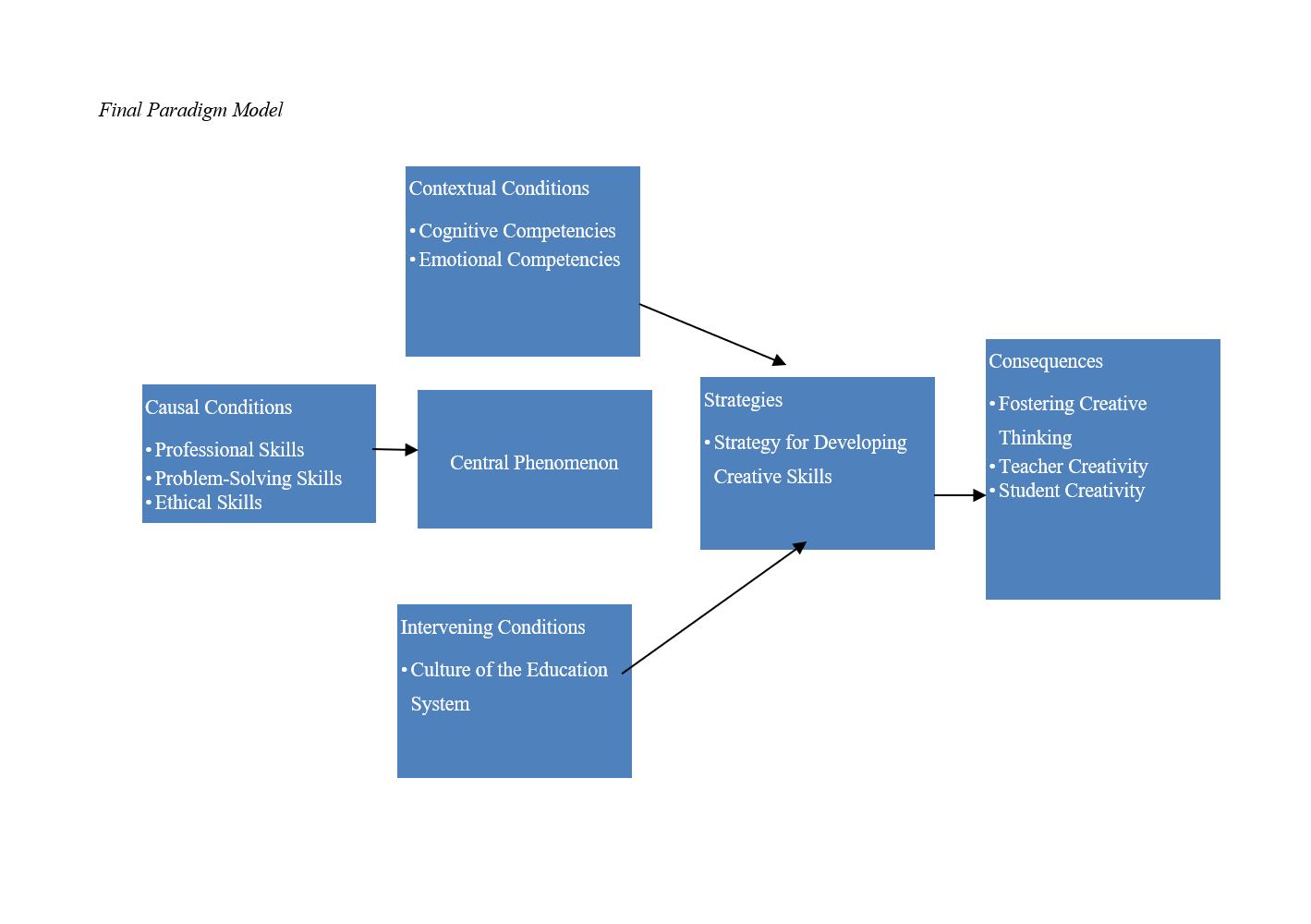Identification of Dimensions and Components for Developing Creative Skills
Keywords:
Creative skills, professional skills, art education teachersAbstract
Objective: This study aims to identify the dimensions and components of developing creative skills.
Methods and Materials: It is an applied-developmental research in terms of purpose and a non-experimental (descriptive) research from the data collection perspective, conducted using a cross-sectional survey method. A qualitative research design was utilized to achieve the research objective. The participant population consisted of university professors and experienced art teachers, who were selected through purposive sampling. Theoretical saturation was reached after 10 interviews. Semi-structured interviews with experts were used as the data collection tool. The validity of the qualitative section was evaluated and confirmed by the judges based on Lincoln and Guba’s recommendation, applying four criteria: credibility, transferability, confirmability, and dependability. The reliability of the qualitative section and the coding of the interviews were assessed with a Holsti coefficient of 0.712, which was confirmed as acceptable. Data were analyzed using grounded theory method in MAXQDA software, which involved extracting primary and secondary categories from the results of the foundational data analysis, leading to the presentation of the final model.
Findings: After data analysis, 11 main themes and 63 subthemes were identified.
Conclusion: Based on the results, it was determined that causal conditions including professional skills, problem-solving skills, and ethical skills have an impact on the central phenomenon of creative skills. These components, along with contextual conditions including cognitive competencies and emotional competencies, and intervening conditions such as the culture of the educational system, influence strategies and actions involving the strategy for developing creative skills.
Downloads

Downloads
Additional Files
Published
Submitted
Revised
Accepted
Issue
Section
License
Copyright (c) 2024 Hasanain Ali Moshanah (Author); Faranak Mousavi (Corresponding Author); Khudhair Jasim Rashid Almamori, Fariba Karimi (Author)

This work is licensed under a Creative Commons Attribution-NonCommercial 4.0 International License.








